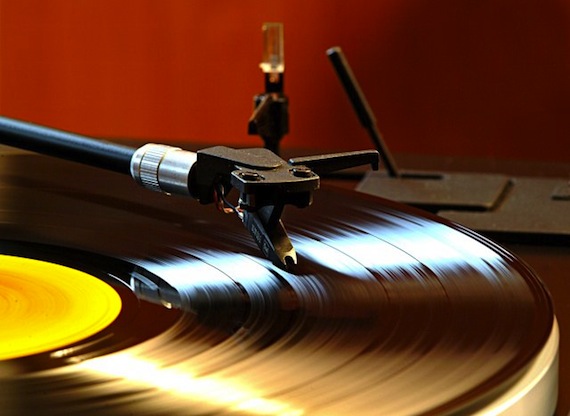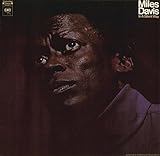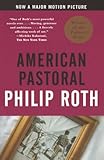
As I write this, I’m listening to the new Beach House album. This is not because I like the new Beach House album (although I do), or because it gives me the chance to say so, thus making me sound slightly cooler (although it might, in a desperate sort of way) or because I’m plugging the record (although it is great, if you enjoy the band’s drunk-on-a-beanbag effect).
I’m listening to it because I’m writing — an activity that for me, in recent years, has demanded musical accompaniment. Far from being a background diversion — something to make kitchen chores a little less soul-killing — I’ve come to believe that the music I listen to while writing bears a definite, if ineffable, relationship to the words that wind up on the screen. This paragraph might not carry the woozy dreaminess of a Beach House song — but how would it have sounded if, while typing, I’d been listening to Public Enemy? Or Def Leppard? Or nothing at all?

 In 1999, Nine Inch Nails’s The Fragile was released to a flood of media attention. This was when a new CD could seem like a cultural event, and, as such, though I didn’t particularly care about Trent Reznor, I read dutifully about the album. And although I’ve largely forgotten The Fragile — I think it gave me a headache — one nugget from its publicity blitz has stayed with me: Chuck Palahniuk was quoted as saying that he listened to Nine Inch Nails as he wrote Fight Club.
In 1999, Nine Inch Nails’s The Fragile was released to a flood of media attention. This was when a new CD could seem like a cultural event, and, as such, though I didn’t particularly care about Trent Reznor, I read dutifully about the album. And although I’ve largely forgotten The Fragile — I think it gave me a headache — one nugget from its publicity blitz has stayed with me: Chuck Palahniuk was quoted as saying that he listened to Nine Inch Nails as he wrote Fight Club.
I remember being sort of shocked by this, not because it didn’t make sense — one can certainly picture Palahniuk in a dim little room, gritting his teeth at the monitor, bashing out his story as Reznor screams at him — but because until then, I’d thought of writing as a monastic pursuit. Writing, to me, was Philip Roth in a cabin somewhere, the only sounds the tapping of his fingers and the wind rushing through the trees. That was the ideal. To write, you needed calm, and for calm, you needed silence.
Perhaps the image of Palahniuk mustering a novel against the shriek of industrial noise helped to change my view. Because not only do I no longer believe it, I’ve gone in the opposing direction: music is now as central to my writing as an idea and a comfortable chair. I now feel almost unhinged if I try to write without something playing to whisk my mind along. Music has become a brace that props up my thoughts, fences them off, prevents them from slipping away. Silence has come to feel like an unfamiliar field, with too much space to roam.
Along with Beach House, Boards of Canada — makers of beat-driven, dystopian electronic music — has lately been my brace of choice. Such sounds somehow hem me in and push my focus outward, into whatever I’m writing. When I need less help, some sort of jazz usually does the trick — with something buoyant like Vince Guaraldi’s Peanuts scores reserved for the easiest days.
Which brings me back to my original question: what is that music — Boards of Canada’s creepy soundscapes, John Coltrane’s hard bop, Snoopy’s dancing tunes — doing to the words?

 I went online in search of answers, and was at first encouraged by what I found. A number of sites have devoted space to the topic, with pieces ranging from the listy (“10 Top Authors Share Their Secrets for Summoning the Muse”) to the self-helpful (one Goodreads thread, “Listening to Music While Writing,” sits under the “Struggling Writers” heading). There are endless suggestions for albums that will not only “summon the muse,” but keep her with you: In a Silent Way, Music For Airports, anything by Philip Glass. No mention of Nine Inch Nails.
I went online in search of answers, and was at first encouraged by what I found. A number of sites have devoted space to the topic, with pieces ranging from the listy (“10 Top Authors Share Their Secrets for Summoning the Muse”) to the self-helpful (one Goodreads thread, “Listening to Music While Writing,” sits under the “Struggling Writers” heading). There are endless suggestions for albums that will not only “summon the muse,” but keep her with you: In a Silent Way, Music For Airports, anything by Philip Glass. No mention of Nine Inch Nails.
The cumulative effect of these posts was the feeling that, with the correct music, you can become the next Joyce Carol Oates, effortlessly meeting your daily quota of words. It’s a tempting narrative, and one that fits with the Internet’s culture of simple solutions: If you’re having trouble with that short story, just put on some Brian Eno. Your latent genius will be unleashed.
 But mixed in with all this good feeling were numerous studies and papers the results of which were both consistent and surprising. A New Jersey Institute of Technology study found that “background music significantly disrupted writing fluency, even though no response to the music was required.” The explanation: “music may increase cognitive load because the brain has to handle the additional information.” A University of Windsor study found that its subjects’ “time-on-task was longest when music was removed.” Another, from Indiana State University, on the “Mozart Effect” — the idea that classical music can somehow boost intelligence — found that “playing background music in the creative writing class had a significant improvement on the student’s behavior, but not a significant improvement on the student’s writing.” In other words, music can provide the inner calm that I used to imagine in my Philip Roth fantasy. It just won’t help me write the next American Pastoral.
But mixed in with all this good feeling were numerous studies and papers the results of which were both consistent and surprising. A New Jersey Institute of Technology study found that “background music significantly disrupted writing fluency, even though no response to the music was required.” The explanation: “music may increase cognitive load because the brain has to handle the additional information.” A University of Windsor study found that its subjects’ “time-on-task was longest when music was removed.” Another, from Indiana State University, on the “Mozart Effect” — the idea that classical music can somehow boost intelligence — found that “playing background music in the creative writing class had a significant improvement on the student’s behavior, but not a significant improvement on the student’s writing.” In other words, music can provide the inner calm that I used to imagine in my Philip Roth fantasy. It just won’t help me write the next American Pastoral.
Time’s Annie Murphy Paul, in a synthesis of such studies, provided the most concise blow to my assumption of music’s benefits: “Playing music you like can lift your mood and increase your arousal — if you listen to it before getting down to work. But it serves as a distraction from cognitively demanding tasks…when you need to give learning and remembering your full attention, silence is golden.”
And on and on. If the science is correct, my Eno-loving peers and I may be deluding ourselves as to music’s utility. We’re most likely being too romantic. “Writing can get lonely,” a Quora contributor wrote, “but when Moby is in my ears, it feels like he’s on the journey with me.” It’s a charming sentiment. But maybe we’re being too eager to make an unappealing task seem less so — the ice cream cone after the doctor’s office — without any thought to the consequences. Maybe Boards of Canada is less of a brace and more of an anchor, slowing down a part of my mind that otherwise would be free. There’s no way to prove that the things I’ve written would have been better had they been written in silence — but what if they could have been, even just a tiny bit? Though I’ll never know, it’s unsettling to think about.
It’s equally unsettling, though, for me to picture a future in which I write in a totally quiet room, with no one “on the journey with me.” The idea is as unappetizing to me as Palahniuk’s habits once seemed. So what, then, to do? On the one hand, I have my habits and experience, my comfort with routine. On the other, studies that show that music is, at best, a nonfactor, and at worst, a hindrance. Hovering over both is the thought that I’m being unserious, the kid who can’t get a flu shot without the promise of a mint-chip cone.
I’m not sure what to do. I’m now listening to Miles Davis’s Someday My Prince Will Come. I’ve listened to this album, while writing or reading, close to 200 times. It’s delicate and warm, gentle and easy. I’ve got the volume turned down low.
Image Credit: Wikimedia Commons.








